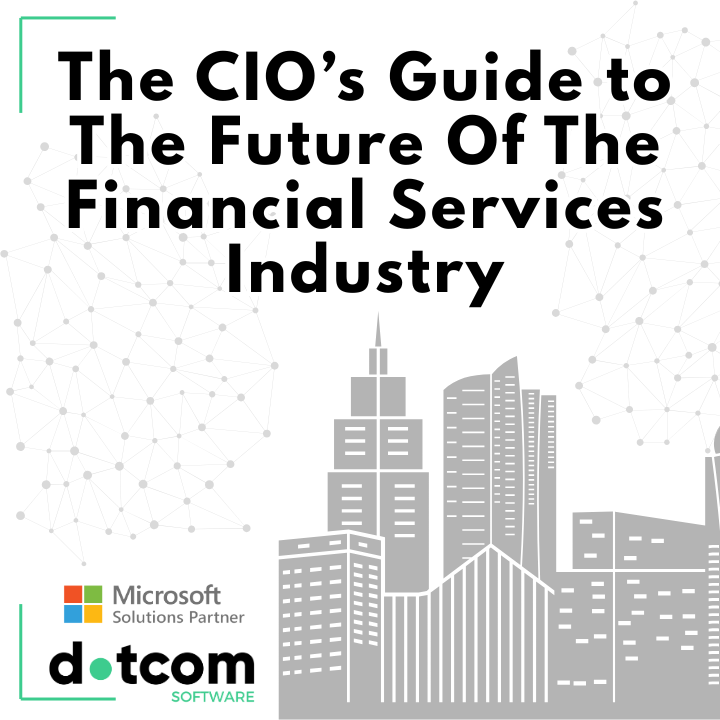


The CIO’s Guide to The Future Of The Financial Services Industry
22nd Sep, 2025
The South African financial services sector has long been a cornerstone of the economy. It is resilient, adaptive, and forward-looking.
But as we move forward, resilience alone is not enough. We are entering an era where technology fundamentally defines competitiveness. CIOs in South Africa are now navigating the same global pressures as their international counterparts, from AI and cloud adoption to regulatory changes, but with a uniquely local context.
This article explores the key technological trends shaping the future of the financial services industry in South Africa and outlines the strategic priorities for CIOs who are tasked with leading this transformation.
AI: From Hype to Hands-On in South Africa
Globally, banks are channelling billions into artificial intelligence.
Bank of America recently committed $4 billion of its $13 billion IT budget to AI for personalisation and productivity, while UBS is deploying AI at scale across its wealth management arm.
While the spending levels in the FSI in South Africa may differ, the strategic direction is identical.
South African institutions are actively experimenting with AI in several key areas:
- Generative AI in Customer Service: Generative AI is improving customer interactions through intelligent chatbots in banking apps and AI-supported call centres.
- AI in Risk Management: AI-driven pattern recognition is proving invaluable for sophisticated risk modelling and fraud detection.
- AI in Wealth and Insurance: AI-powered insights are being used to inform wealth management strategies and insurance underwriting.
For local CIOs, the opportunity lies in a measured, value-driven approach to AI adoption. Rather than pursuing hype, the focus should be on scalable quick wins, such as automating KYC checks or empowering financial advisors with tools like Copilot.
Cloud & FinOps: Balancing Innovation and Cost
Historically, the financial services industry in South Africa has been cautious regarding cloud adoption, largely due to regulatory uncertainty.
However, with Microsoft Azure and AWS data centres now firmly established locally, these barriers are rapidly diminishing.
For CIOs, three priorities are emerging:
- Hybrid Architectures: Balancing legacy mainframes with modern, cloud-native platforms is essential for a smooth transition.
- FinOps Practices: Embedding financial discipline into cloud usage is critical to prevent runaway costs, particularly with resource-intensive AI workloads.
- Composable Platforms: Building modular systems that can adapt to rapid product launches and evolving compliance needs is key to maintaining agility.
The core principle is innovation with accountability. CIOs are expected to modernise their infrastructure while demonstrating a clear return on investment within the first year.
Security: From Back Office to Boardroom
In South Africa, cybercrime is not an abstract threat but a significant national risk. From large-scale ransomware attacks on corporations to sophisticated phishing schemes targeting mobile banking users, threats are evolving faster than many institutions can manage.
Consequently, security is no longer just the CISO's responsibility; it is an issue of board-level accountability for the CIO.
The conversation is shifting towards:
- Zero Trust Models: Implementing security frameworks using solutions like Microsoft Entra and Intune.
- AI-Driven Threat Detection: Leveraging tools such as Microsoft Sentinel and Defender XDR for proactive security.
- Data Governance: Ensuring compliance with FSCA and POPIA obligations through platforms like Microsoft Purview.
Cybersecurity spending is now directly tied to regulatory compliance and investor confidence, making it a non-negotiable priority.
Open Finance & RegTech in the South African Market
Open Finance is on the horizon in South Africa. The Intergovernmental Fintech Working Group (IFWG) has already piloted regulatory sandboxes, and the FSCA is encouraging innovation while prioritising consumer protection.
This paves the way for several opportunities:
- Secure APIs: Enabling collaboration between banks, insurers, and fintechs.
- Cross-Industry Services: Developing new offerings like embedded insurance and digital pensions.
- RegTech Automation: Streamlining compliance with FSCA, SARB, and POPIA requirements at a lower cost.
Forward-thinking CIOs will embrace these open ecosystems rather than resist them.
Architecting the Future of Finance
In boardrooms across Johannesburg, Cape Town, and Durban, one message is clear: technology is no longer just supporting the business—it is the business.
South Africa’s FSI sector is at the beginning of a transformative decade, and CIOs are no longer just keeping the lights on. They are the architects of digital futures, tasked with balancing innovation, security, compliance, and cost.
The winners will be those who:
- Adopt AI responsibly
- Modernise with purpose
- Build resilient, open ecosystems
- Lead with transparency and trust
At Dotcom Software, we partner with CIOs to navigate these challenges, providing the expertise to build secure, compliant, and innovative digital foundations.
Let us be the solution that drives your transformation forward.

